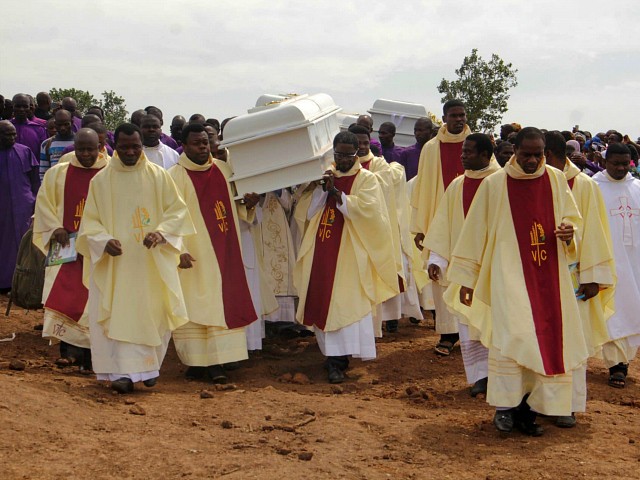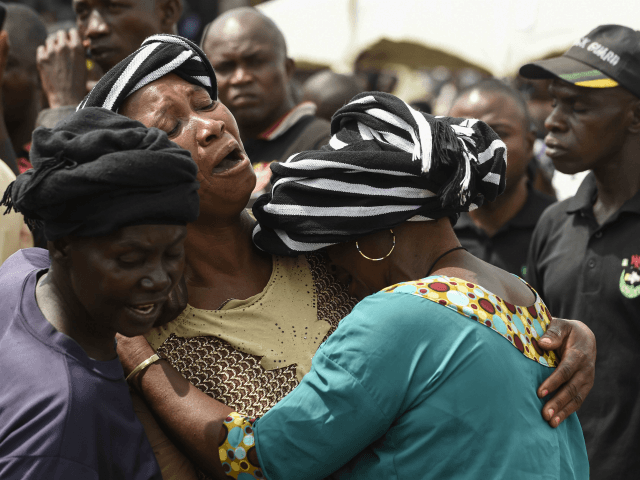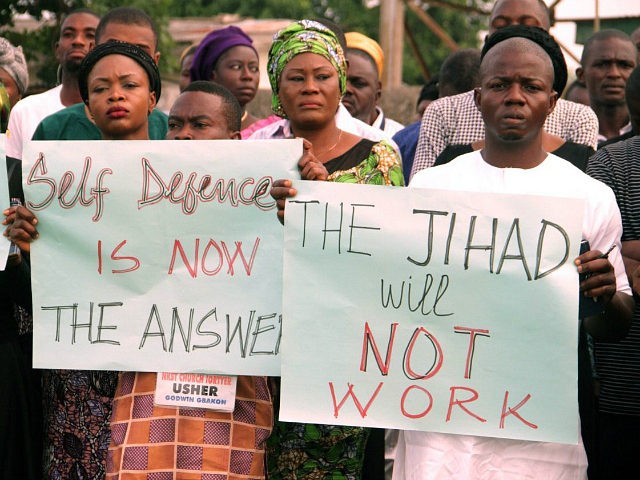Secretary of State Antony Blinken removed Nigeria from the U.S. list of countries that engage in severe religious freedom violations, drawing the consternation of an international Christian persecution watchdog group this week.
David Curry, CEO of Open Doors USA, a group that monitors Christian persecution across the globe, declared in a statement Wednesday:
We’re deeply alarmed at today’s decision by the U.S. State Department to end the designation of Nigeria as a Country of Particular Concern (CPC). This is not only a baffling error, it’s likely in direct violation of the International Religious Freedom Act, the law that requires these designations to be made in the first place.
On November 15, Blinken made the CPC and “Entities of Particular Concern (EPC)” designations.
The latter refers to non-state actors who have also engaged in particularly severe violations of religious freedom.
About a week before Blinken put together the list, Nigerian authorities arrested a reporter for the anti-communist China newspaper Epoch Times who criticized the African government’s failure to protect Christians from deadly persecution at the hands of Fulani jihadis.

Clergymen carry white coffins containing the bodies of priests allegedly killed by Fulani herdsmen, for burial at Ayati-Ikpayongo in Gwer East district of Benue State, north-central Nigeria on May 22, 2018. (EMMY IBU/AFP/Getty Images)
Communist China has developed close ties to Nigeria through its “Belt and Road” colonization initiative. Still, there is currently no evidence to suggest Beijing played a role in the reporter’s detention.
Blinken listed jihadis from Boko Haram and the Islamic State (ISIS) branch that operates in the West African country as top violators of religious freedom, but he omitted the Fulanis.
In 2018, fatality figures indicated that the Fulanis were growing deadlier than Boko Haram, also known to target Christians.
Ofter referred to as herdsmen, the Fulani jihadis have massacred Christians in north-central Nigeria. Some analysts suggest that the violence began as tension over resources between the mostly-Muslim Fulani herdsmen and mostly-Christian farmers in Kaduna and neighboring states. However, Fulani attacks have evolved into a campaign of persecution against any Christian who crosses their way. The State Department has identified the Fulanis as terrorists.
Per the International Religious Freedom Act (IRFA), Blinken designated the governments of Burma, communist China, Eritrea, Iran, North Korea, Pakistan, Russia, Saudi Arabia, Tajikistan, and Turkmenistan as “Countries of Particular Concern” for engaging in or tolerating “particularly severe violations of religious freedom.”
The law defines particularly severe violations as “systematic, ongoing, egregious violations of religious freedom,” including transgressions “such as torture; prolonged detention without charges, forced disappearance, or other flagrant denial of life, liberty, or security of persons,” according to the State Department.
Notably absent from Blinken’s CPC designations list is Nigeria, ranked on the lower end (number nine) of the top ten countries on Open Doors’ 2021 World Watch List of nations where Christians face extreme levels of persecution over their faith.

A woman cries while trying to console a woman who lost her husband during the funeral service for people killed during clashes between cattle herders and farmers, on January 11, 2018, in Ibrahim Babangida Square in the Benue state capital Makurdi. Violence between the mainly Muslim Fulani herdsmen and Christian farmers has claimed thousands of lives across Nigeria’s central states over the past few decades. (PIUS UTOMI EKPEI/AFP/Getty Images)
Open Doors found that, in Nigeria alone, an average of ten Christians is killed each day for their faith, driving a whopping 60-percent increase in the martyrdom of followers of Christ last year.
The group added in its latest World Watch List:
More Christians are murdered for their faith in Nigeria than in any other country. Violent attacks by Boko Haram, Hausa-Fulani Muslim militant herdsmen, ISWAP (an affiliate of the Islamic State group) and other Islamic extremist groups are common in the north and middle belt of the country, and are becoming more common farther south.
[…]
Muhammadu Buhari’s presidency (2015 onwards) has seen a sharp increase in attempts to force Islamization on the country, including appointing Muslims to key government positions.
Buhari, an ethnic Fulani himself who became president in 2015 after ruling as a military dictator in the 1980s, has vowed to deal with Boko Haram, ISIS, and his fellow Fulanis but has done little to protect Christians from jihadi attacks.
Nigeria is nearly evenly split between Muslims and Christians, with Islam adherents holding a slight edge.
The IRFA law requires President Joe Biden to review the status of religious freedom in every country in the world each year and make CPC, EPC, and other designations. Presidents delegate the authority to make the list of religious freedom violators to the secretary of state.

COMMENTS
Please let us know if you're having issues with commenting.